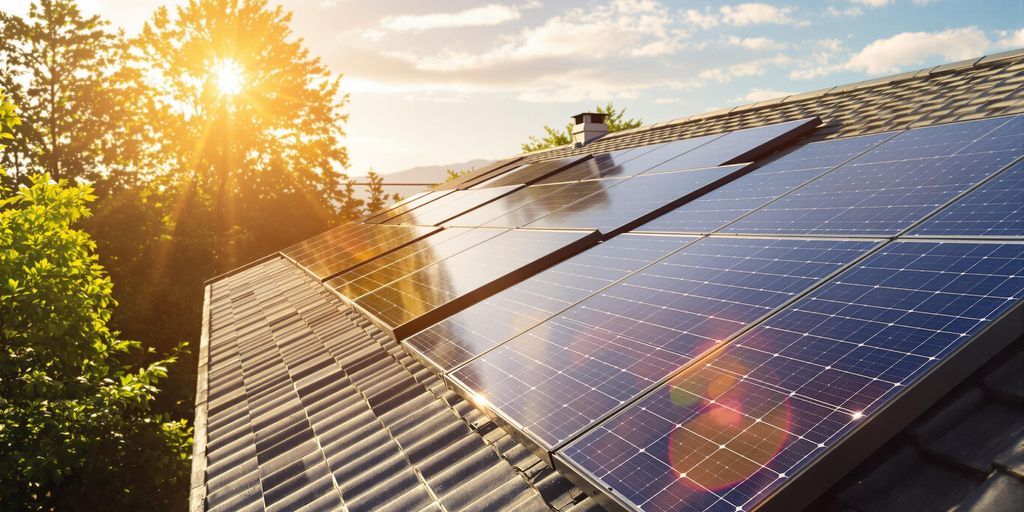Considering a home with solar panels? This guide breaks down the advantages and disadvantages to help you make an informed decision. From potential savings on utility bills to the impact on your home’s value and the complexities of financing options like PACE loans, understanding these factors is crucial before signing on the dotted line.
The Bright Side: Advantages of Solar Panels
Owning a home with solar panels offers several compelling benefits:
- Reduced Utility Bills: Solar panels can significantly lower your monthly electricity costs.
- Increased Home Value: Homes equipped with solar systems often command a higher resale value.
- Environmental Impact: They contribute to a lower carbon footprint by utilizing clean energy.
- Longevity: Most solar panels are designed to last over 20 years.
- Low Maintenance: Solar systems generally require minimal upkeep.
Potential Drawbacks to Consider
However, there are also potential downsides to be aware of:
- Immobility: Solar panels are fixed to the property and cannot be moved if you relocate.
- Environmental Limitations: Surrounding factors like growing trees can reduce system efficiency over time.
- Aesthetics: Some individuals may find solar panels visually unappealing.
- Reduced Output: Older panels (over 20 years) may experience a decrease in energy production.
Understanding PACE Loans
Property Assessed Clean Energy (PACE) loans offer a way to finance solar installations. These loans are tied to the property, not the owner, and are repaid through property taxes. This means the debt transfers to the new owner upon sale. While PACE loans can offer benefits like long repayment terms and potentially low interest rates due to their security, they are only available to property owners, have minimum investment requirements, and may be viewed unfavorably by some mortgage lenders due to their lien priority.
Key Questions for Homebuyers
When evaluating a home with solar panels, it’s essential to ask:
- Is the solar system owned or leased? Owned systems are generally preferable.
- Who manufactured the panels and who installed them? This is important for warranty information.
- Is net metering available? This allows you to sell excess energy back to the utility.
- What is the size of the system? This helps estimate potential energy offsets and savings.
- Reviewing past utility bills from the seller can provide valuable insights.
Common Solar Panel Issues
While generally reliable, solar panels can encounter issues such as roof integration concerns, electrical wiring problems, micro-cracks, hot spots, snail trails, bird nesting, and inverter failures. Regular inspections and professional maintenance are recommended to address these potential problems.


